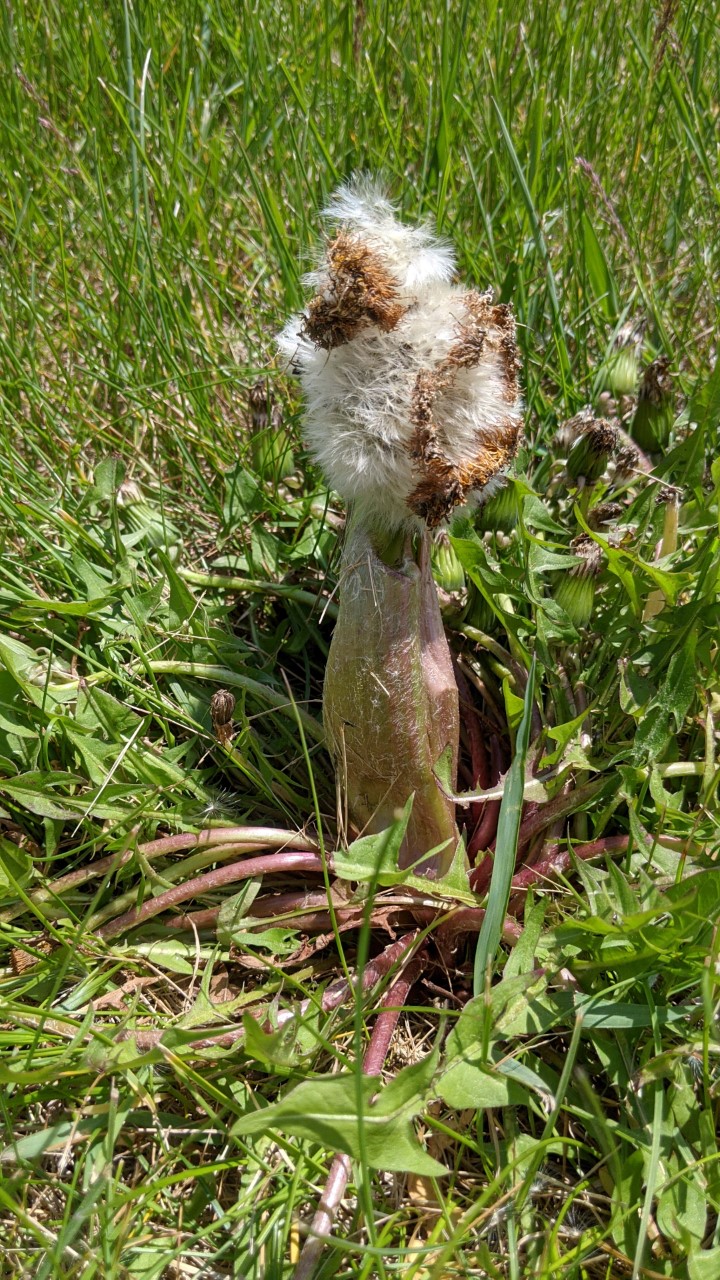By Darrin Kimbler, Extension Educator

Some of us are seeing strange and fascinating looking plants sprouting up around the state. For example, I found this asparagus spear (photo above) poking through my soil. Another Extension colleague just received this crazy dandelion image (photo right).
Plants that we are used to seeing in a normal state sometimes grow in a flattened and deformed fashion. This deformity in growth is called fasciation. That is fasciation, not fascination. The symptoms arise from changes at the growing point (apical meristem) on the plant. Those changes can occur because of spontaneous genetic mutations, disease infections, physical damage caused by insects or other environmental stresses. Fasciation causes flattening and elongation of the growth point, creating a ribbon like shape. Curling, cresting and brooming are other forms associated with this phenomenon. It is a scientifically fascinating phenomenon.
While fasciation is not common, it does affect a wide range of plant groups. It has been observed affecting everything from ferns and pines to dandelions and asparagus. Most commonly, we find it occurring in the cactus, willow, asparagus, dandelion and foxglove plant families. While most of the time this condition is a non-contagious curiosity, there are occasional incidences of insect transmitted viruses and bacteria infecting multiple susceptible plants. In addition, tools can transfer pathogens from an infected plant to another if proper sanitation is not used.
Plant breeders have promoted this distorted growth pattern to propagate and create cultivars of structurally interesting ornamental plants. Most are propagated vegetatively by cuttings or grafting, but in the case of cockscomb (Celosia argentea var. cristata) the form is passed through seeds, allowing breeders to create a wide range of form and color in their cultivars.
As you are out in the garden and in nature, look for these oddities and impress your friends and family with a little fascinating fasciated plant trivia.




